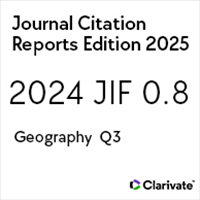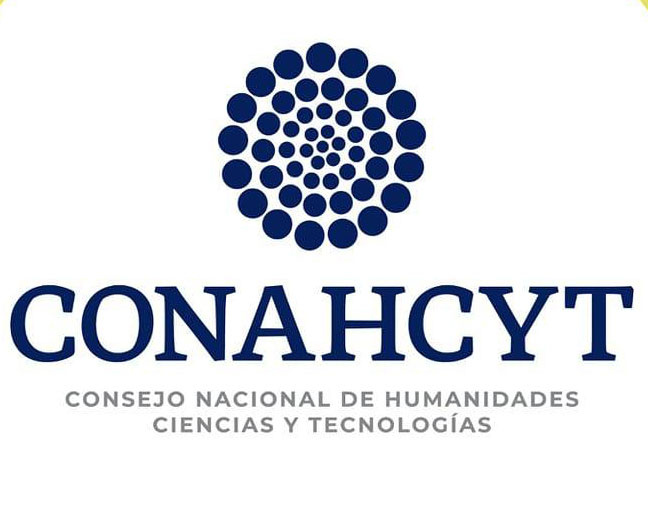Acción colectiva y modelos de racionalidad
Collective action and rationality models
https://doi.org/10.21670/ref.2004.09.a05
Resumen
La teoría olsoniana de la acción colectiva (Olson, 1965) asume un modelo de racionalidad económica basado en un cálculo simple de costes y beneficios, que difícilmente puede ser sostenido en la actualidad, a la luz de los modelos de racionalidad propuestos recientemente por diversas líneas de investigación. Dentro de éstas, voy a detenerme en dos propuestas concretas, a saber: la teoría de juegos evolutiva y, sobre todo, la teoría de la racionalidad limitada. Ambas alternativas se muestran especialmente fértiles a la hora de proponer modelos que no necesitan de una racionalidad maximizadora, ni de entornos de información completa y perfecta. Sus planteamientos, basados en la posibilidad de aprendizaje de los individuos a lo largo del tiempo, contribuyen al análisis del surgimiento de normas sociales, algo tan necesario para la resolución de problemas relacionados con la cooperación. Pues bien, la apuesta que se realiza en este artículo es que estas dos novedosas aportaciones posibilitan un avance fundamental en el estudio de la acción colectiva.Abstract The Olsonian theory of collective action (Olson, 1965) assumes a model of economic rationality, based on a simple calculus between costs and benefits, that can be hardly hold at present, given the models of rationality proposed recently by several fields of research. In relation to these fields, I will concentrate in two specific proposals, namely: evolutionary game theory and, over all, the theory of bounded rationality. Both alternatives are specially fruitful in order to propose models that do not need a maximizing rationality, or environments of complete and perfect information. Their approaches, based on the possibility of individual learning over the time, have contributed to the analysis of the emergence of social norms, which is something really necessary to the resolution of problems related to cooperation. Thus, this article asserts that these two new theoretical contributions make feasible a fundamental advance in the study of collective action.
Citas
Aguiar, F. 1991. “La lógica de la cooperación”. En F. Aguiar (comp.). Intereses individuales y acción colectiva. Madrid, Fundación Pablo Iglesias, pp. 1-42.
_____. 2004. “Teoría de la decisión”, Artículo no publicado.
Alexander, J. M. 2002. “Evolutionary Game Theory”. En The Stanford Encyclopedia of Philosophy (Summer 2003 Edition). E. N. Zalta. URL = <http://plato.stanford.edu/archives/sum2003/entries/game-evolutionary/>.
Anand, P. 1993. Foundations of Rational Choice Under Risk. Oxford, Clarendon Press.
Axelrod, R. 1984. The Evolution of Cooperation. Nueva York, Basic Books.
_____. 1997. The Complexity of Cooperation: Agent-based Models of Competition and Collaboration. Princeton, Princeton University Press.
Bell, D. E., H. Raiffa y A. Tversky. 1988. Decision Making. Descriptive, Normative and Prescriptive Interaction. Cambridge, Cambridge University Press. DOI: https://doi.org/10.1017/CBO9780511598951
Boudon, R. 1981. La lógica de lo social. Madrid, Rialp.
Chong, D. 1991. Collective Action and the Civil Rights Movement. Chicago, The University of Chicago Press. DOI: https://doi.org/10.7208/chicago/9780226228693.001.0001
Gigerenzer, G. 2001. “The Adaptative Toolbox”. En G. Gigerenzer y R. Selten (coords.). Bounded Rationality: The Adaptative Toolbox. Cambridge (EUA). MIT Press.
Gigerenzer, G. y R. Selten. 2001. Bounded Rationality: The Adaptative Toolbox. Cambridge (EUA). MIT Press. DOI: https://doi.org/10.7551/mitpress/1654.001.0001
Goldstein, W. M. y R. M. Hogarth (eds.). 1997. Research on Judgement and Decision Making: Currents, Connections, and Controversies. Cambridge, Cambridge University Press.
Granoveter, M. 1978. “Threshold Models of Collective Behaviour”. En American Journal of Sociology, 83, pp. 1420-1443. DOI: https://doi.org/10.1086/226707
Hardin, R. 1971. “Collective Action as an Agreeable N-Prisoner’s Dilemma”. En Behavioral Science, 16 (5), pp. 472-481. DOI: https://doi.org/10.1002/bs.3830160507
_____. 1982. Collective Action. Baltimore, The John Hopkins University Press.
Heckatorn, D. 1996. “The Dynamics and Dilemmas of Collective Action”. En American Sociological Review, 61 (2), pp. 250-277. DOI: https://doi.org/10.2307/2096334
Herreros, F. 2002a. ¿Por qué confiar? El problema de la creación de capital social, Madrid, Fundación Juan March.
_____. 2002b. “¿Son las relaciones sociales una fuente de recursos? Una definición del capital social.”. En Papers, 67, 129-148. DOI: https://doi.org/10.5565/rev/papers/v67n0.1669
Herreros, F. y A. de Francisco. 2001. «Introducción: el capital social como programa de investigación”. En Zona Abierta, núms. 94/95, pp. 1-46.
Lubell, M. y J. T. Scholz. 2001. “Cooperation, Reciprocity and the Collective-Action Heuristic”. En American Journal of Political Science, 45 (1), pp. 160-178. DOI: https://doi.org/10.2307/2669365
Maynard Smith, J. 1982. Evolution and the Theory of Games. Cambridge, Cambridge University Press.
Obreschall. 1994. “Rational Choice in Collective Protest”. En Rationality and Society, vol. 6 (1), pp. 79-100. DOI: https://doi.org/10.1177/1043463194006001006
Oliver, P. 1993. “Formal Models of Collective Action”. En Annual Review of Sociology, 19, pp. 271-300. DOI: https://doi.org/10.1146/annurev.so.19.080193.001415
Olson, M. 1971 [1965]. The Logic of Collective Action: Public Goods and the Theory of Groups. Cambridge, MA, Harvard University Press.
Orbell, J, M. y R. M. Dawes. 1991. “A ‘Cognitive Miser’ Theory of Cooperators’ Advantaje”. En American Political Science Review, 85, pp. 515-528. DOI: https://doi.org/10.2307/1963172
Ostrom, E. 1998. “A Behavioural Approach to the Rational Choice of Collective Action”. En American Political Science Review, 92, pp. 1-22. DOI: https://doi.org/10.2307/2585925
Simon, H. 1955. “A Behavioral Model of Rational Choice”. En Quarterly Journal of Economics, 69, pp. 99-118. DOI: https://doi.org/10.2307/1884852
_____. 1983. Reason in Human Affairs. Oxford, Basil Blackwell.
Scholz, J. T. y M. Lubell. 1999. “Trust and Taxpaying: Testing the Heuristic Approach to Collective Action”. En American Journal of Political Science, 42 (2), pp. 398-417. DOI: https://doi.org/10.2307/2991764
Scholz, J. T. y N. Pinney. 1995. “Duty, Fear and Tax Compliance: The Heuristic Basis of Citizenship Behaviour”. En American Journal of Political Science, 39, pp. 490-512. DOI: https://doi.org/10.2307/2111622
Suk-Young, M. 1999. “Structure and Strategy in Collective Action”. En American Journal of Sociology, 105 (1), pp. 128-156. DOI: https://doi.org/10.1086/210269
Taylor, M. y H. Ward. 1982. “Chicken, Whales and Lumpy Goods”. En Political Studies, 30, pp. 350-370. DOI: https://doi.org/10.1111/j.1467-9248.1982.tb00545.x
Todd, P. M. y G. Gigerenzer. 2003. “Bounding Rationality to the World”. En Journal of Economic Psychology, 24, pp. 143-165. DOI: https://doi.org/10.1016/S0167-4870(02)00200-3
Van Lange, P., W. Liebrand, D. Messick y H. Wilke. 1992. “Introduction and Literature Review”. En W. Liebrand, D. Messick y H. Wilke (comps.). Social Dilemmas. Theoretical Issues and Research Findings, Oxford. Pergamon Press.
Weber, M. 1984. Economía y sociedad. México, Fondo de Cultura Económica.































